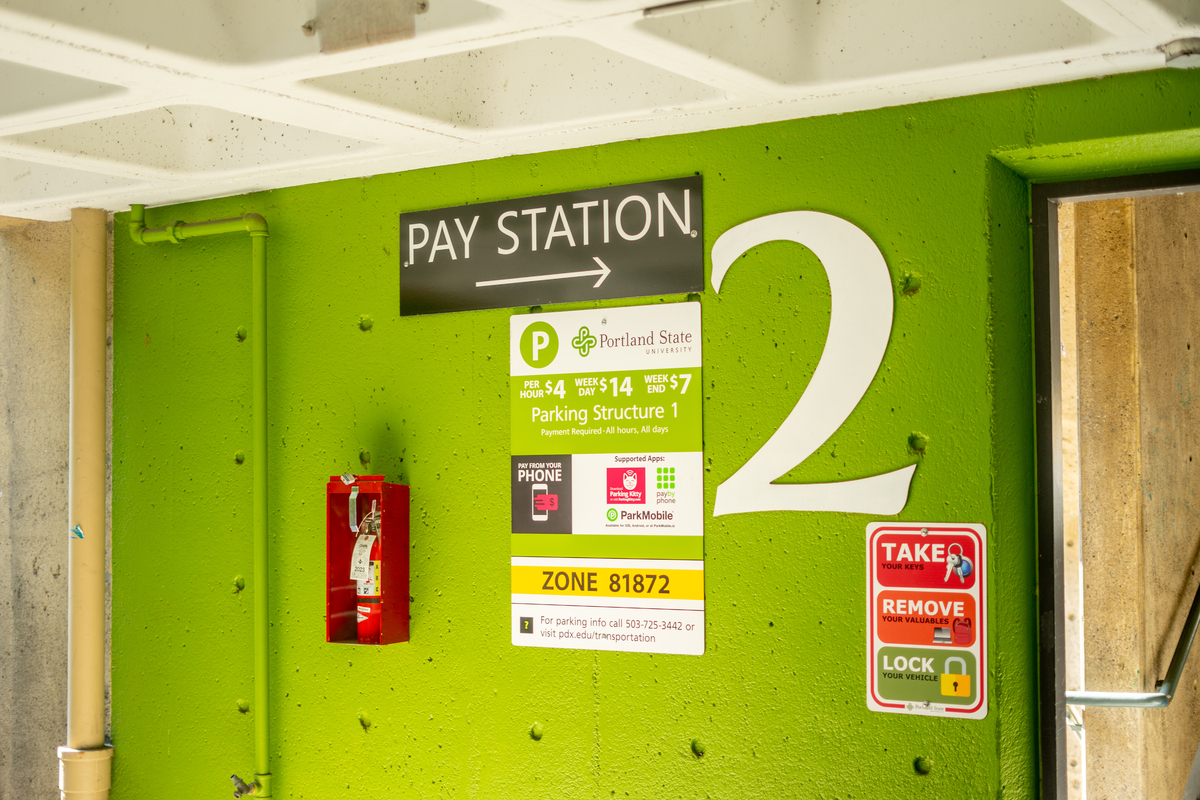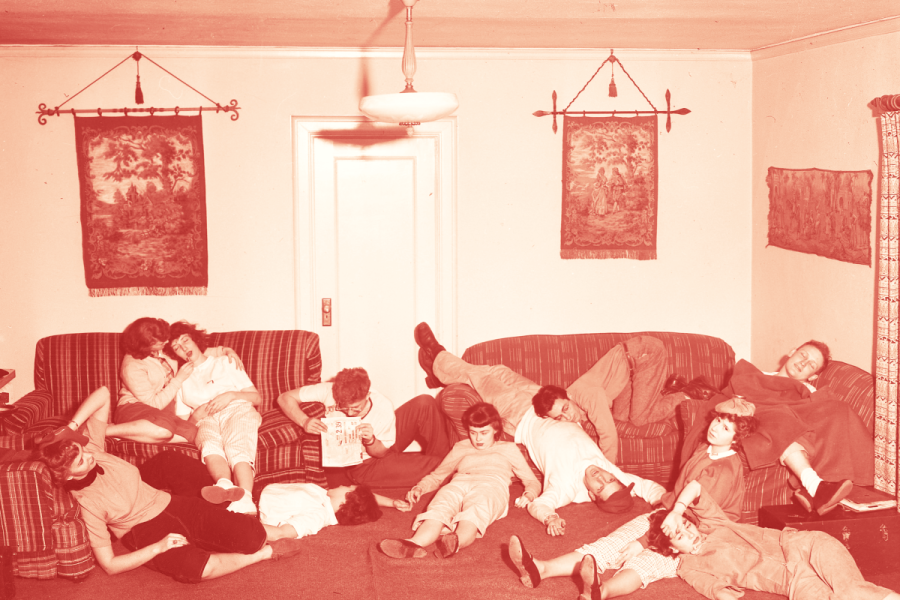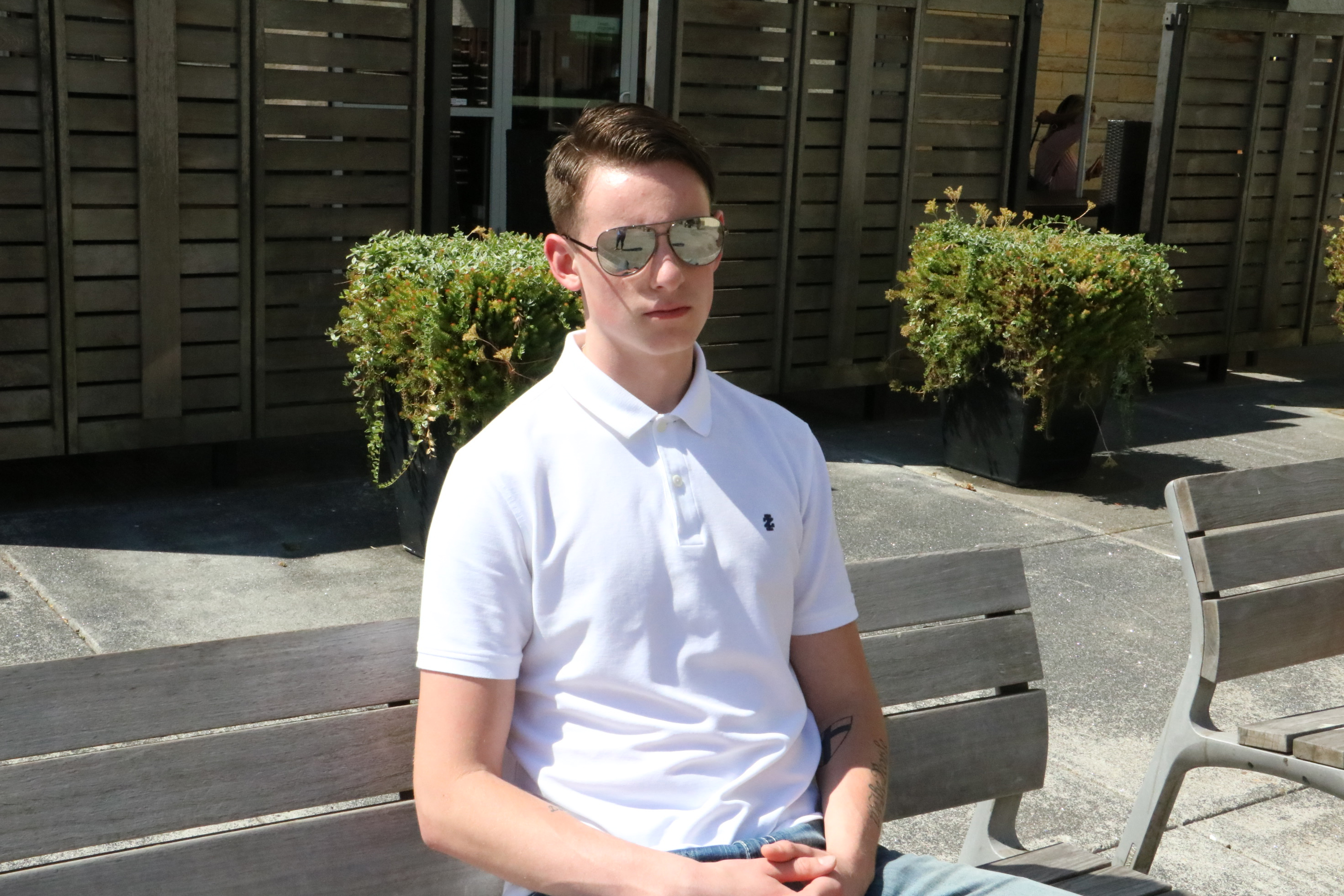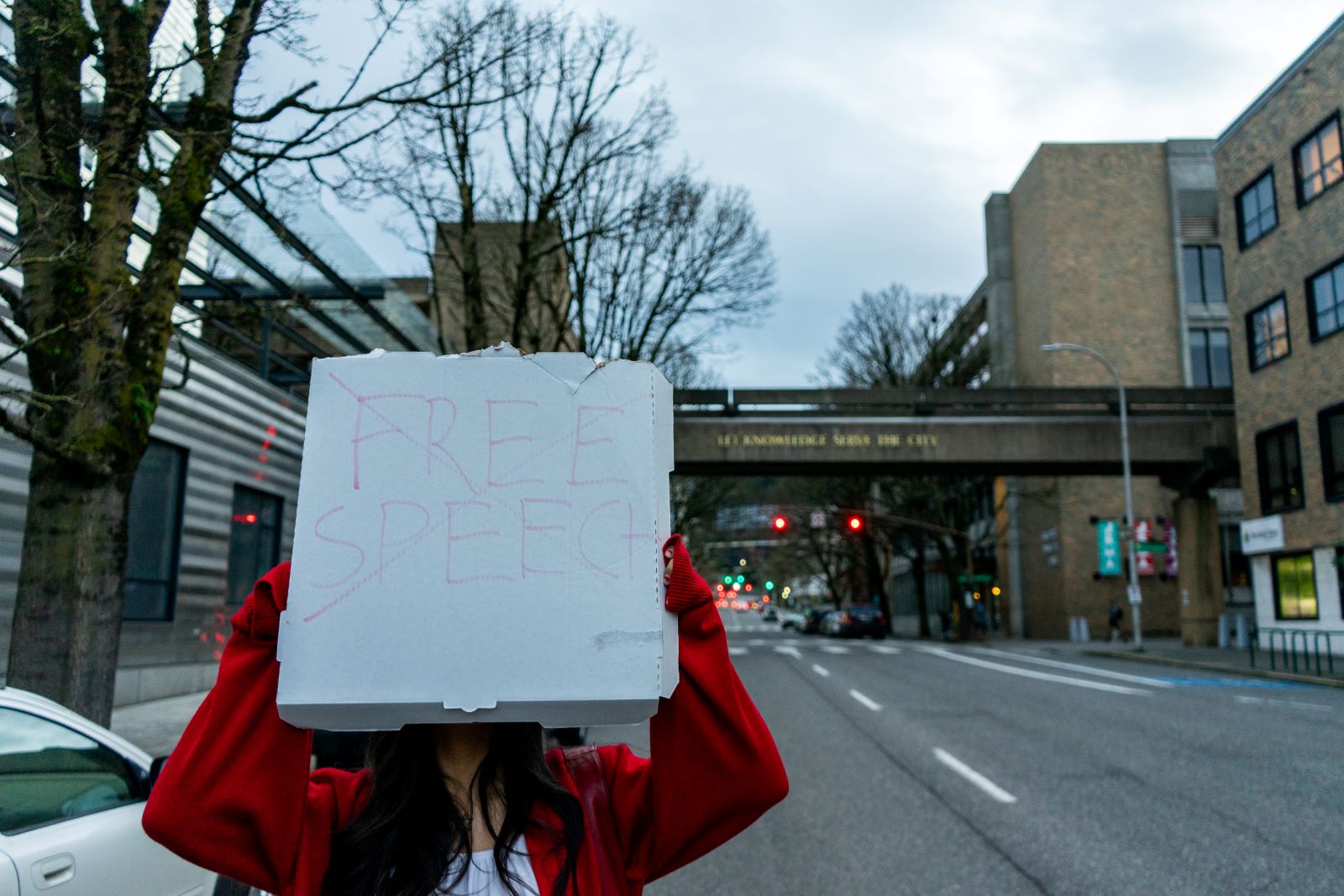As the school year approaches, Portland State students and staff must decide whether to buy parking permits for the year. Although parking on campus is convenient for some, others worry about the safety of PSU parking garages and the high cost of parking passes.
Dory Hammersley, a graduate student at PSU, said she purchased a parking permit after having several negative interactions on TriMet during her commute to and from campus from the St. Johns neighborhood in north Portland. However, Hammersley said she struggled to afford the Monday-Wednesday-Friday parking pass that she purchased for Parking Structure 3—which is one of the cheapest parking options available.
“The other parking structures that charge $400 plus a term to park for a few days out of the week are ridiculous, especially with the state of some of the garages,” Hammersley said. “For example, my Toyota Tacoma—which is not very big—barely fits both height- and width-wise in Parking Structure 3, and is difficult to park unless the stars align to decide that I find a spot that has one open next to it, so I’m not in danger of hitting something as I turn in. The other parking structures aren’t much better.”
Though Hammersley explained how the PSU parking garages are one of the few places she feels safe leaving her car in Portland, she also explained that the lack of lighting in Parking Structure 3 made her anxious—especially after dark.
“When I parked in [Parking Structure 3], I did not like walking back there after my night class at 9 p.m.,” Hammersley said. “It’s not well-lit, and some of the people who hung around that area at night made me anxious. I would like to at least see the price of permits go down to something more reasonable. I would also appreciate better lighting and security in the less central areas of campus in general, not just for the parking structures.”
Ian Stude, director of Transportation & Parking Services (TAPS), explained the prices. Since TAPS is a self-funded department, the funds from parking passes are used to better PSU’s parking structures, increase security and allow for the sale of subsidized TriMet passes.
“There’s no general-fund money,” Stude explained. “There’s no tuition money flowing in. There’s no fees flowing in from regular student fees. Generally speaking, our budget is comprised of the revenue that we bring in through the services we provide.”
In order to provide subsidized TriMet passes, free rides on the Portland Streetcar to PSU students and discounted rates for Biketown, Stude said TAPS would need to pay for these discounts directly. In addition to these public transit and Biketown discounts, Stude said a significant portion of their income goes directly to the maintenance and security of parking structures.
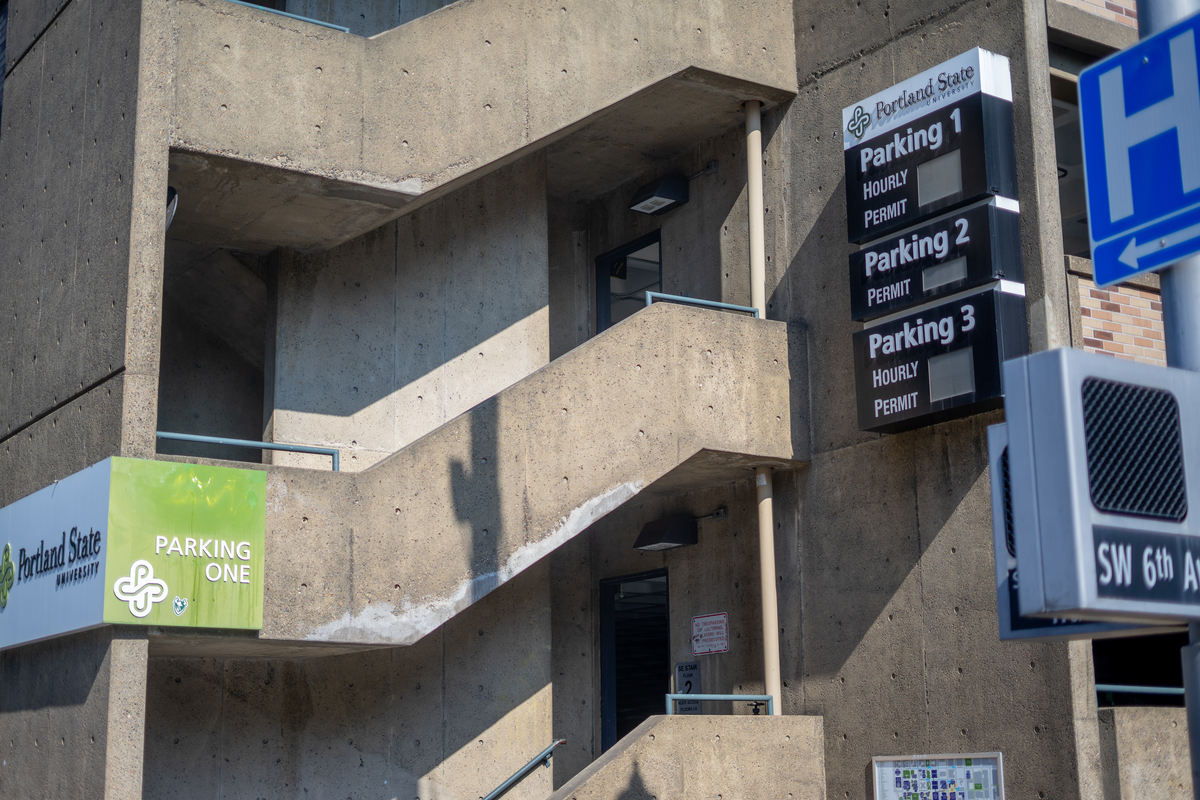
Stude said TAPS is committed to offering some of the most affordable rates in Portland despite PSU parking passes appearing excessively expensive for college students. According to Stude, TAPS intentionally works to keep their prices between 20% and 40% below the typical market price while ensuring the structures’ maintenance and safety.
“It’s extremely expensive to build parking structures and to own, maintain and operate them,” Stude said. “We have made some major investments in securing some of the garages with roll-up doors—particularly with [Parking] Structure 3—which is underway right now. We’re hoping to have new gates in by the start of the fall term to secure that location.”
Stude continued to explain how TAPS’s budget has been reduced by one-fifth, and how they are running at 80% of their pre-COVID-19 budget while trying to provide the same services. Even with a shrinking enrollment, Stude said TAPS expects 21,000 students on campus this fall—with only 3,800 parking stalls available. Stude said the parking structures are at about 65% capacity as opposed to the 90–95% capacity they saw pre-COVID-19 when people were coming to campus more often.
Stude is anticipating a more active and populated campus this year, which would increase the demand for parking. However, he explained how constructing a new parking structure to meet the increased demand would restrict the availability of real estate which could be utilized for other university structures, such as classrooms, laboratories or recreation centers.
“There’s an opportunity cost every time we take up real estate for parking,” Stude said. “We’re choosing[…] something else that’s closer to the mission of this institution. The reason that we focus so heavily on our relationship with TriMet and our integration with their programs is the fact that the university is a hub of the transit network and is designed to facilitate people coming to campus without having to drive.”
Stude explained how he is aware that many patrons of PSU parking structures are concerned about security issues—particularly car break-ins and theft—but wanted to assure them that both TAPS and the Campus Public Safety Office (CPSO) are working hard to ensure the safety and security of parking at PSU.
“We are on track to spend about a half a million dollars adding parking security features,” Stude said. “We have a small, dedicated maintenance group. They are out there every day cleaning up after whatever has happened in the garages[…] We’ve worked very closely with CPSO. Now that they have returned to full staff, they’ve taken this very seriously[…] We’ve started to see a change, and I want to credit that to CPSO and their approach to taking the problem seriously and having the proper staff to address it.”
At this time, CPSO wasn’t able to be reached to comment.
Until several months ago, Stude explained how TAPS used a private security company for their parking structures. CPSO has overtaken security duties for PSU parking structures for the last four to six months. According to a report by TAPS and CPSO, the first six months of 2023 have seen the lowest six-month average of reported car break-ins since 2018.
In 2018, it had the lowest number of reported break-ins at 2.5 a week. In 2019, it had the highest at 6.3 break-ins a week. There were 3.8 break-ins a week in 2020 and 3.9 in 2021. The first six months of 2023 have had 2.7 break-ins a week.
Stude encouraged victims of break-ins, theft and other security issues to report these incidents directly to CPSO. That way TAPS and CPSO can continue to identify problems and respond to them effectively.
“Everyone has been impacted to some degree or another,” Stude said. “It is a very difficult problem and, unfortunately, we’ve continued to be a target. But I think the approach that [the] Campus Public Safety [Office] has been taking these last few months has been stellar and has helped us out.”

